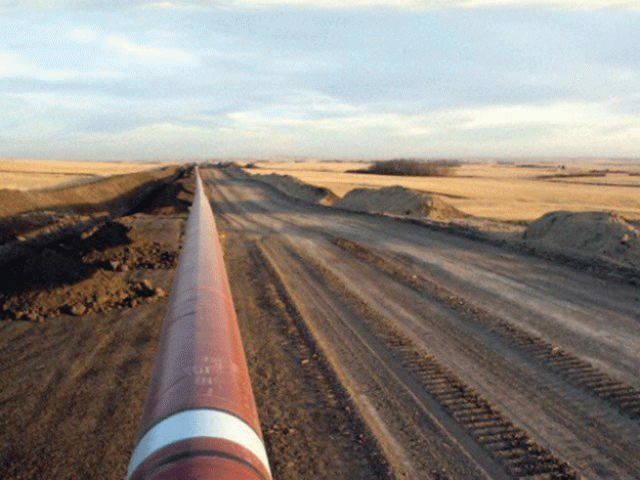NA session: Gas infrastructure cess bill rushed through NA
Approval to be followed by IMF meeting to okay eight-tranche loan

Approval to be followed by IMF meeting to okay eight-tranche loan. STOCK IMAGE
The approval of the GIDC Bill from parliament will be followed by the convening of an executive board meeting of the IMF, tentatively scheduled for late June, to approve the eight-tranche loan for Pakistan.
However, the government has yet to prove its mettle in the upper house of parliament, where it doesn’t enjoy the simple majority.
The smaller opposition parties – the Pakistan Tehreek-e-Insaf (PTI), the Muttahida Qaumi Movement (MQM) and the Jamaat-e-Islami (JI) – vehemently opposed the bill and criticised the Pakistan People’s Party (PPP) for aligning with the government over the issue, despite delivering speeches against the new legislation.

On May 10, the IMF’s staff-level mission had recommended its board to approve the $506 million loan tranche for Pakistan, subject to the approval of the GIDC Bill by parliament.
The clearance of the GIDC Bill is also critical for the next budget, as the government has estimated receiving over Rs150 billion by levying the cess on gas.
Providing the background to the legislation, Petroleum & Natural Resources Minister Shahid Khaqan Abbasi said it was one of the most controversial moves, as the Supreme Court had struck down the previous PPP government’s move to approve the gas cess through a money bill in 2011. He said collection had been made through issuance of ordinances since then.
The provincial governments are vehemently opposing the government’s move, terming it against the constitution and provincial autonomy.
PTI’s Arif Alvi and Shireen Mazari, MQM’s Farooq Sattar and JI’s Sahibzada Tariqullah spoke against the bill during the National Assembly session.
PPP’s Nafisa Shah held that the legislation would affect the smaller provinces and demanded that the government reveal where the amount collected under this section had been spent.
However, the PPP members did not become a part of the boycott or protest during the proceedings as four amendments were introduced in the bill, which were not opposed by the government.
The petroleum minister told the house that it was clearly mentioned in the bill that the collected amount was being spent on development of the gas infrastructure.
He said the legislation was vital for development of energy resources in the country, since 50 per cent of the total energy resources were linked with gas. “It is also inaccurate to say that provinces are self-sufficient in the gas sector.”
Currently, there is only 4 billion cubic feet of supply against the 8 billion cubic feet of demand, Abbasi said.
Public service promotions
In response to NA Leader of the Opposition Khursheed Shah’s concern that public service promotions were not based on merit, Prime Minister Nawaz Sharif said many grade-20 public officers were not promoted because of doubts regarding their integrity.
Published in The Express Tribune, May 20th, 2015.

1724319076-0/Untitled-design-(5)1724319076-0-208x130.webp)

















COMMENTS
Comments are moderated and generally will be posted if they are on-topic and not abusive.
For more information, please see our Comments FAQ